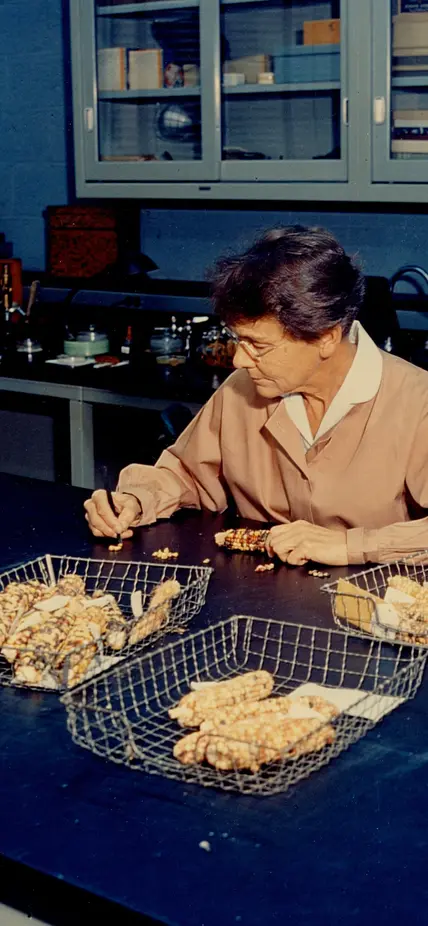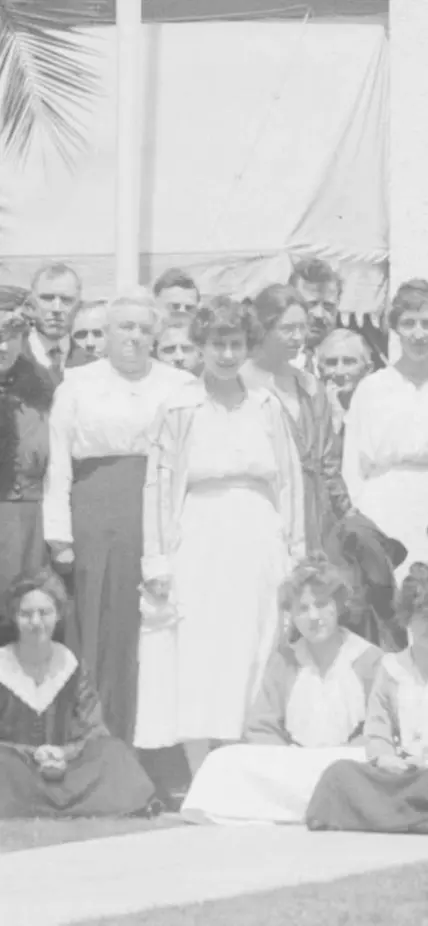Carnegie geneticist Barbara McClintock made several groundbreaking discoveries about chromosomes and is best known for her discovery of transposable elements, or "jumping genes" in maize. This breakthrough, which earned McClintock a Nobel prize in 1983, led to dramatic advances in understanding infectious disease and evolution.
We sat down with National Medal of Science laureate Nina Fedoroff, a former Carnegie Staff Scientist, to discuss the profound significance of McClintock's work.
Fedoroff, herself an esteemed figure in the field of plant biology, also discussed McClintock's insights into genetic processes and how they inspired her own passion for unraveling the mysteries of plant biology.
Although McClintock's work was eventually recognized with the scientific community's highest honors, it took many years for her brilliance to be recognized. When Fedoroff first met her, McClintock's work was largely overlooked by her peers. Despite this, McClintock was never deterred from her investigations, saying: "If you know you are on the right track, if you have this inner knowledge, then nobody can turn you off... no matter what they say.”
While a postdoc at Carnegie, Fedoroff was involved in determining the nucleotide sequence of the first complete gene. Later, after meeting McClintock, she developed an interest in studying jumping genes at the molecular level, which she was able to pursue when she was offered a Staff Scientist position by the late Don Brown. Her contributions were later recognized with a National Medal of Science by President George W. Bush.

